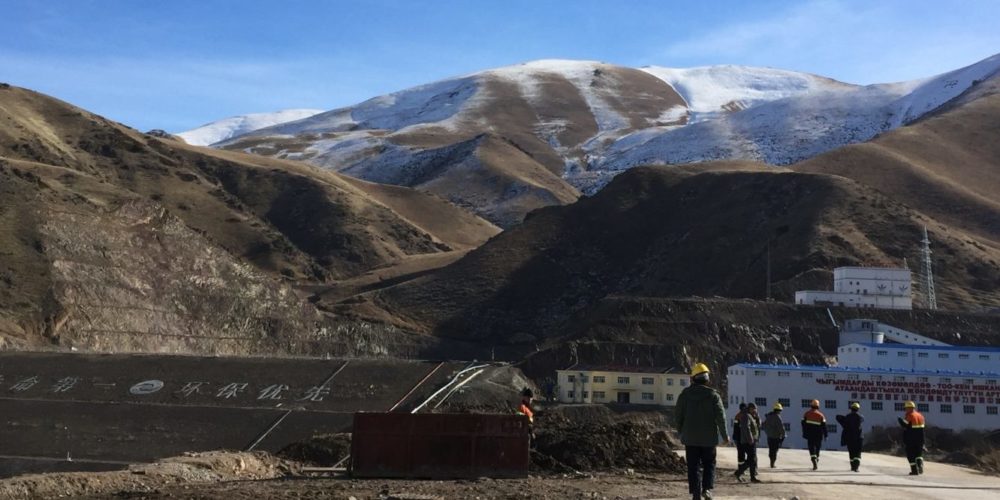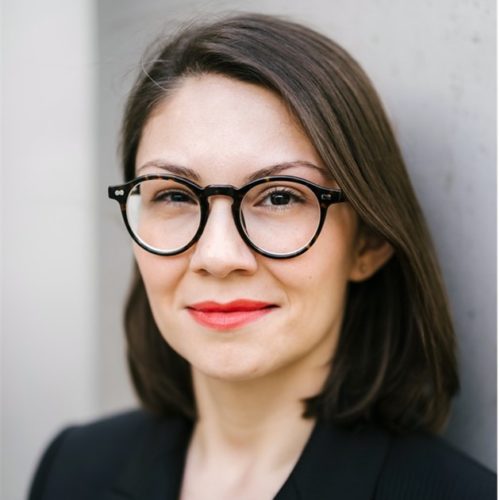Mining Story I
A question of trust: Mining conflicts in Kyrgyzstan

“If I were to give you money and you were free to decide whether to keep it or donate it to a charitable cause, what would you do?” For such an economic experiment, the institutional economist Beril Ocaklı surveyed 120 people in northern Kyrgyzstan. The surprising result: Almost everyone donated substantial amounts, regardless of whether it was for their own city or for another community. In her doctoral research the young researcher begs the question: do we – the so-called homo oeconomicus – act more cooperatively than anticipated by the standard economic theory and if so, under what conditions?
Beril Ocaklı investigates mining conflicts in Kyrgyzstan, a small country in Central Asia that is strongly influenced by post-Soviet structural changes. Kyrgyzstan has significant gold deposits, with gold trade amounting to 40% of the total, but the population is divided on the extraction of this precious metal. In the industrial north the mines are mostly welcomed, in the rural south they are partly violently resisted.
Mining conflicts in the village of Maidan
By using various case studies Beril Ocaklı investigates why there are such strong conflicts in some parts of the country whereas in others new extractive projects are welcome. She spent two months in Maidan, a village in southern Kyrgyzstan, which has repeatedly made the headlines in the Kyrgyz press. An Australian company had received a mining license from the central government, but after years of prospecting and exploring, when the first excavators arrived in the village, the inhabitants pushed back violently. Above all, the fear of health and ecological consequences had put people in a state of uproar. They also perceived the laboriously built up subsistence through agriculture threatened by a possible contamination of their water and soil resources by mining waste.
“Trust is the key,” explains the researcher. “Can people trust the companies? Can they trust their own government? Are the revenues from gold mining distributed fairly? And is there enough support in case problems surface? The majority of people in Maidan probably answered these questions with a “no”.”
Ocaklı explains the initial poor communication of the mining company and a weak connection to the Kyrgyz capital Bishkek to be among the main driving conflict forces. The villagers assert not to be informed sufficiently about the mine plans, accordingly they felt abandoned with the new challenge. “By now it is evident: there must be a clear and conceivable purpose for the local communities that can serve as the basis for cooperation”.
Mining tradition in Orlovka
This seems to be the case in the north of the country. “In Orlovka, near the capital, there is a long mining tradition from which the population has benefitted all throughout history,” says the doctoral researcher. “During the Soviet Union, Orlovka was a town built for and by mining, and had thus flourished on this basis over the years. The closure of the mine meant unemployment and economic depression. When new investments were in horizon from 2005 onwards, people felt that the meaning of life had been regained, although of course there are critical voices here too.” Today, Orlovka is home to the third largest gold mine in Kyrgyzstan.
But it is important to Beril Ocaklı to stress that the critical position of people in Maidan says by no means anything about their norms of cooperation and prosociality. “They want to protect their livelihood and don’t know whether the mining risk is worth taking.” In the meantime, the mining company has given up and sold its license to a Chinese investor. For the time being, this is unlikely to elicit the needed social acceptance.
Publication
Here, you can read more about Beril’s research findings on Orlovka’s intricate extractive entanglements:
Ocaklı, Beril, Tobias Krueger, Marco A. Janssen, and Ulan Kasymov. 2021. “Taking the discourse seriously: Rational self-interest and resistance to mining in Kyrgyzstan.” Ecological Economics 189:107177. doi: https://doi.org/10.1016/j.ecolecon.2021.107177
Contact

Beril Ocaklı
Doctoral Researcher
Email:
Beril Ocaklı has been doing her doctoral research at the Integrative Research Institute on Transformations of Human-Environment Systems (IRI THESys) at HU Berlin since 2015. The institutional economist investigates mining conflicts in Kyrgyzstan.


